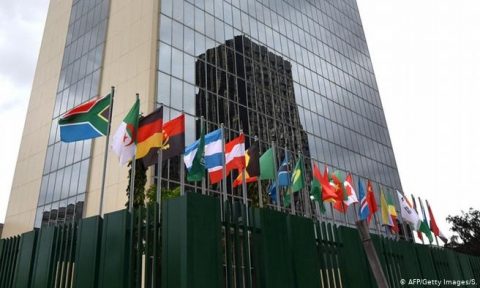AfDB Approves Over $73m Grant To Boost Food Production In Tanzania
African News, East/Central Africa, Latest Headlines, News Around Africa Monday, July 18th, 2022
(AFRICAN EXAMINER) – African Development Bank (AfDB) Group has approved $73.5 million to finance a programme that will boost Tanzania’s food production by a million tonnes in the next three years.
The programme tagged, “Tanzania Agricultural Inputs Support Project”, spanning September 2022-June 2025, was designed under the AfDB’s African Emergency Food Production Facility to tackle a potential food crisis exacerbated by the war in Ukraine. It seeks to strengthen the country’s capacity to achieve self-sufficiency in wheat and edible oil production by 2030.
Approved by the AfDB’s Board of Directors on 20 May, the African Emergency Food Production Facility will provide 20 million African smallholder farmers with certified seeds and increase access to agricultural fertilizers and enable them to rapidly produce 38 million tons of food. This will result in a $12 billion increase in food production in just two years.
The funds approved for Tanzania to finance the programme comprises a $2.5 million grant from the resources of the African Development Fund (ADF), the Bank’s concessional window, and a $71 million loan. The AfDB’s contribution represents 87.3 percent of the project’s total cost, estimated at $84.07 million. The Tanzanian government will provide the balance of $11 million.
The funds will also help strengthen the supply of improved wheat, sunflower, and rice seeds that are climate resilient; ensure fertilizer availability and affordability; and support policies that improve the regulatory environment for the rapid uptake of certified seeds and fertilizers.
Moreover, the programme will bolster the national production of wheat, sunflower and rice to mitigate food security risks and climate-induced stresses.
Meanwhile, Tanzania imports more than 90 percent of its wheat, 67 percent of which comes from Russia and Ukraine, 47 percent of vegetable oils from the two countries, and about 25 percent of fertilizer from Russia.
Recent estimates show that the combined food, fuel, and fertilizer shocks will lead to an additional 1.2 million people falling below the poverty line. The fertilizer shock is most detrimental for poorer rural households, which rely more heavily on agriculture for their income and spend a larger share of their income on food
AfDB’s Director General for East Africa Nnenna Nwabufo said the Russia-Ukraine conflict, combined with the impacts from Covid-19, climate change, and resultant high prices for fuel and fertilizer, has an adverse impact on poverty and food insecurity.
“Increases in the cost of edible oils, rice and wheat will affect all households, but hit the poorest most severely”, she said.
The projected additional production will directly benefit 1.2 million households. Other beneficiaries will include 1,000 small and medium-scale seed producers and agro-dealers and 10,000 unemployed young women and men through jobs in the wheat, sunflower and fertilizer value chains.
Under the project, land under wheat production will increase from 100,000 ha to 400,000 ha by 2025. Yields of wheat, sunflower and rice will double through the use of improved climate-resilient seeds.
Tanzania’s Minister of Agriculture, Hussein Bashe said the project aligns with Tanzania’s Development Plan to boost agricultural production, enhance incomes, create employment, and diversify products.
Related Posts
Short URL: https://www.africanexaminer.com/?p=78904






















